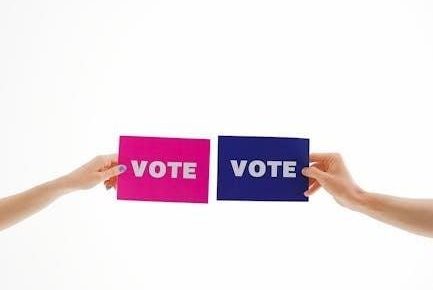Self-respect worksheets are practical tools for fostering personal growth, helping individuals recognize their strengths, set boundaries, and cultivate emotional resilience through structured exercises and reflections․

What Are Self-Respect Worksheets?
Self-respect worksheets are structured tools designed to help individuals assess, reflect on, and improve their self-perception and personal boundaries․ These resources, often available in PDF formats, include exercises like gratitude lists, strength-based reflections, and emotional management strategies․ They guide users through self-assessment, encouraging them to identify their values, capabilities, and areas for growth․ Worksheets may also focus on setting healthy boundaries and practicing self-care, fostering a deeper understanding of one’s worth․ They are widely used by educators, mental health professionals, and individuals seeking personal development․ By providing structured activities, self-respect worksheets empower users to cultivate confidence and resilience, making them invaluable for both children and adults․ Their adaptability allows them to be tailored to diverse needs and preferences, ensuring a personalized approach to self-improvement․ Journaling and reflective exercises are common components, enhancing their effectiveness in fostering self-awareness and positive change․
Why Are Self-Respect Worksheets Important?
Self-respect worksheets are essential for fostering self-awareness, confidence, and emotional resilience․ They provide structured exercises to help individuals recognize their worth, set healthy boundaries, and manage emotions effectively․ By guiding users through reflections on personal strengths and values, these tools empower them to build a positive self-image․ Worksheets are particularly valuable for addressing low self-esteem, as they offer practical strategies to enhance self-perception․ They also serve as a resource for educators and mental health professionals to support individuals in developing resilience․ Their adaptability makes them suitable for diverse audiences, including children and adults․ Ultimately, self-respect worksheets are a powerful means of promoting personal growth and emotional well-being, offering a clear path to self-improvement and a stronger sense of self-worth․
How Can Worksheets Help Improve Self-Respect?
Self-respect worksheets provide practical tools to enhance personal growth and emotional resilience․ They help individuals identify their strengths, set healthy boundaries, and develop a positive self-image․ Through structured exercises, worksheets guide users to reflect on their values and achievements, fostering confidence and self-worth․ Activities such as gratitude practices and emotional management strategies empower individuals to cultivate resilience․ Worksheets also offer a safe space for self-reflection, enabling users to address negative self-perceptions and replace them with affirming thoughts․ By focusing on personal growth and self-awareness, these tools help individuals develop a stronger sense of self-respect, leading to improved emotional well-being and more fulfilling relationships with others․ Regular use of worksheets can create a lasting impact on self-perception and overall life satisfaction․

Understanding Self-Respect
Self-respect is recognizing one’s worth and valuing oneself, built through acknowledging strengths, embracing individuality, and engaging in positive practices that foster confidence and emotional resilience․

The Definition of Self-Respect
Self-respect is the fundamental recognition of one’s inherent worth and value as an individual․ It involves acknowledging personal strengths, capabilities, and uniqueness while maintaining healthy boundaries․ Self-respect is not about arrogance but rather a quiet confidence in one’s abilities and dignity․ It fosters emotional resilience, enabling individuals to handle challenges and setbacks with grace․ By valuing oneself, self-respect promotes a positive self-image and encourages personal growth․ It is a cornerstone of mental well-being, influencing how individuals perceive themselves and interact with the world․ Cultivating self-respect helps build confidence, assertiveness, and the ability to embrace one’s true self without external validation․
Recognizing Personal Capabilities and Strengths
Recognizing personal capabilities and strengths is a vital aspect of self-respect, as it allows individuals to acknowledge their unique talents and accomplishments․ By identifying these, one can build confidence and develop a positive self-image․ Worksheets often include exercises like listing achievements, skills, and qualities that make them proud․ This self-reflection fosters self-awareness, helping individuals understand their potential and value․ Acknowledging strengths also encourages self-acceptance and resilience, enabling individuals to navigate challenges more effectively․ Worksheets provide structured methods to explore and celebrate personal capabilities, reinforcing the belief in one’s worth and fostering a deeper connection with oneself․ This recognition is foundational for building and maintaining healthy self-respect, as it highlights what makes each person unique and valuable․
The Relationship Between Self-Respect and Self-Esteem
Self-respect and self-esteem are closely intertwined, with self-respect serving as the foundation for healthy self-esteem․ Self-respect involves recognizing and valuing oneself as a worthy individual, while self-esteem refers to the degree to which one feels capable and deserving of success․ Worksheets designed for self-respect often include exercises that help individuals identify their strengths, set boundaries, and practice self-compassion, all of which contribute to building self-esteem․ By fostering a positive self-image and encouraging self-acceptance, these tools enhance both self-respect and self-esteem․ Worksheets provide structured methods to explore and strengthen this relationship, helping individuals develop confidence and resilience․ This connection is essential for personal growth and overall well-being, as it empowers individuals to embrace their worth and capabilities fully․

Types of Self-Respect Worksheets

Self-respect worksheets include various types such as self-assessment, boundary identification, and emotional management exercises․ Each type helps individuals focus on specific areas to enhance their self-respect and personal growth․
Self-Respect Assessment Worksheets
Self-respect assessment worksheets are designed to help individuals evaluate their self-worth and identify personal strengths․ These tools often include multiple-choice questions, true/false statements, and open-ended prompts to encourage self-reflection․ For instance, participants may rate statements like “I can manage a crisis without help” or “I feel proud of myself․” These assessments provide insights into one’s self-esteem, helping to pinpoint areas for improvement․ They are valuable for understanding emotional well-being and fostering personal growth․ By completing these worksheets, individuals gain clarity on their self-respect levels and develop strategies to enhance it․ Regular use of these assessments can lead to greater self-awareness and confidence․

Worksheets for Identifying Personal Boundaries
Worksheets for identifying personal boundaries are essential tools for fostering self-respect by helping individuals establish and communicate their limits clearly․ These exercises often include prompts like listing acceptable and unacceptable behaviors in relationships or scenarios․ They encourage users to reflect on past experiences where boundaries were crossed and how they felt․ By completing these worksheets, individuals can develop a clearer understanding of their emotional and physical needs․ Setting healthy boundaries is crucial for maintaining self-respect, as it allows individuals to protect their well-being and assert their values confidently․ These worksheets also provide practical strategies for enforcing boundaries respectfully, promoting healthier relationships and emotional resilience․ Regular practice enhances one’s ability to prioritize personal needs without compromising self-worth․
Emotional Management and Self-Respect Worksheets
Emotional management and self-respect worksheets are designed to help individuals understand and regulate their emotions while fostering a positive sense of self-worth․ These tools often include exercises that guide users in identifying emotional triggers, practicing mindfulness, and developing healthy coping strategies․ By learning to manage emotions effectively, individuals can build resilience and reduce self-criticism․ Worksheets may also include prompts for reflecting on past experiences, recognizing patterns, and developing affirmations to reinforce self-respect․ Practical activities, such as journaling or rating emotional intensity, encourage users to process their feelings constructively․ These resources empower individuals to take control of their emotional well-being, fostering a stronger connection to their values and personal boundaries․ Regular use of these worksheets can lead to improved emotional stability and a more compassionate relationship with oneself․
How to Use Self-Respect Worksheets Effectively
To effectively use self-respect worksheets, start with clear goals, engage in honest self-reflection, and practice consistently․ These tools empower personal growth and emotional resilience through structured exercises․
Setting Goals for Self-Improvement

Setting clear, achievable goals is essential for fostering self-respect․ Worksheets often guide individuals in identifying personal aspirations and breaking them into manageable steps․ Start by assessing strengths and areas for growth․ Use SMART goals—Specific, Measurable, Achievable, Relevant, and Time-bound—to ensure progress․ For example, a goal might be to practice daily affirmations or set healthy boundaries․ Tracking these goals in worksheets helps maintain accountability and celebrates milestones․ Over time, this process builds confidence, resilience, and a stronger sense of self-worth․ Regularly reviewing and adjusting goals ensures continuous growth and alignment with personal values․ By focusing on realistic objectives, individuals can gradually enhance their self-respect and overall well-being․
Practical Steps to Enhance Self-Respect
Enhancing self-respect involves consistent, intentional actions․ Start by practicing daily affirmations to reinforce positive self-perceptions․ Identify and challenge negative self-talk by reframing unkind thoughts into compassionate ones․ Set healthy boundaries with others to protect your emotional well-being․ Engage in activities that align with your values, fostering a sense of purpose and pride․ Regularly reflect on your accomplishments, no matter how small, to acknowledge your progress․ Incorporate self-care routines, such as mindfulness or journaling, to nurture your mental and emotional health․ Surround yourself with supportive individuals who encourage and respect you․ By taking these practical steps, you can build a stronger foundation of self-respect and improve your overall quality of life․ Consistency is key to sustaining growth and confidence․
The Role of Journaling in Self-Respect Development
Journaling plays a transformative role in self-respect development by providing a safe space for self-reflection and growth․ It allows individuals to explore their thoughts, emotions, and experiences, fostering self-awareness and honesty․ By documenting strengths, accomplishments, and positive attributes, journaling helps build confidence and reinforces self-worth․ Gratitude practices within journaling can shift focus to the positive aspects of life, enhancing emotional well-being․ Additionally, journaling serves as a tool to identify and challenge negative self-talk, promoting a more compassionate and respectful internal dialogue․ Regular journaling in conjunction with self-respect worksheets can deepen self-understanding, encouraging personal growth and resilience․ This practice empowers individuals to acknowledge their value and develop a more loving and respectful relationship with themselves over time․
Benefits of Using Self-Respect Worksheets
Self-respect worksheets enhance self-esteem, confidence, and emotional resilience, fostering healthier relationships and a positive self-image while promoting personal growth and overall well-being․
Improved Self-Esteem and Confidence

Self-respect worksheets play a vital role in enhancing self-esteem and confidence by helping individuals recognize their strengths and capabilities․ Through structured exercises, these tools guide users to reflect on their accomplishments and positive qualities, fostering a more optimistic self-view․ Activities such as identifying personal strengths, practicing gratitude, and setting achievable goals empower individuals to build resilience and faith in their abilities․ By consistently engaging with these worksheets, users can overcome self-doubt and develop a stronger sense of self-worth, leading to improved confidence in various aspects of life․ This positive transformation not only enhances personal growth but also fosters healthier relationships and overall well-being․
Enhanced Relationships with Others
Self-respect worksheets contribute to healthier relationships by fostering mutual respect, clear communication, and emotional awareness․ When individuals value themselves, they are better equipped to set boundaries, express needs, and empathize with others․ Worksheets often include exercises that promote understanding personal limits and practicing assertiveness, which are essential for maintaining balanced relationships․ By cultivating self-respect, people become more confident in expressing their feelings and listening actively, leading to deeper connections․ Additionally, self-respect helps individuals avoid codependency and instead foster relationships built on equality and mutual appreciation․ This transformation not only strengthens personal bonds but also encourages a culture of respect and understanding in all interactions, benefiting both individuals and those around them․
Better Emotional Well-Being and Resilience
Engaging with self-respect worksheets fosters emotional well-being by helping individuals develop resilience and positive self-perceptions․ These tools often include exercises for identifying strengths, practicing gratitude, and managing emotions․ By regularly reflecting on personal achievements and positive traits, individuals build a stronger sense of self-worth, enabling them to handle challenges more effectively․ Worksheets also encourage mindfulness and self-care practices, which enhance emotional stability․ Improved resilience allows individuals to recover more quickly from setbacks, fostering a more optimistic outlook on life․ Over time, this leads to better emotional health, as self-respect becomes a foundation for navigating life’s difficulties with confidence and poise, ultimately contributing to a more balanced and fulfilling life․
Specific Activities and Exercises
Self-respect worksheets include exercises like gratitude journals, strength-based reflections, and emotional management techniques, helping individuals identify personal capabilities and develop positive self-perceptions through structured, engaging activities․
Gratitude Exercises for Self-Respect
Gratitude exercises are a powerful component of self-respect worksheets, encouraging individuals to focus on positive aspects of their lives․ By reflecting on things they are thankful for, such as personal achievements, supportive relationships, or daily joys, individuals can cultivate a mindset that values their own worth․ These exercises often involve listing gratitudes daily, which helps shift focus from shortcomings to strengths․ Over time, this practice fosters self-appreciation and reinforces the belief in one’s deservingness of respect and happiness․ Gratitude exercises are simple yet effective tools for building and maintaining healthy self-respect․
Strength-Based Worksheets for Self-Reflection
Strength-based worksheets for self-reflection focus on identifying and amplifying personal strengths, fostering self-awareness and confidence․ These tools guide individuals to list their positive traits, skills, and past achievements, helping them recognize their capabilities․ By emphasizing strengths, these exercises counteract self-doubt and build resilience․ They often include prompts like “What am I proud of?” or “How have I used my skills to overcome challenges?” This approach encourages individuals to view themselves positively, reinforcing self-respect․ Regular use of these worksheets can lead to a greater appreciation of one’s value, empowering individuals to set ambitious goals and pursue personal growth with confidence․ They are particularly effective for those seeking to enhance their self-image and overall well-being․
Self-Care Activities to Promote Self-Respect
Self-care activities are essential for nurturing self-respect, as they encourage individuals to prioritize their well-being and engage in practices that foster self-love․ Common activities include journaling, mindfulness exercises, and setting personal boundaries․ Gratitude exercises, such as writing down daily positives, can enhance self-appreciation․ Spending time in nature or practicing yoga also promotes emotional balance․ These activities help individuals recognize their worth and develop a positive self-image․ By incorporating self-care routines, people can build resilience and confidence, leading to healthier relationships and personal growth․ Worksheets often guide users through these exercises, offering structured prompts to reflect on their needs and aspirations․ Regular self-care not only strengthens self-respect but also improves overall mental and emotional well-being․

Cultivating self-respect is a journey requiring consistent effort and self-awareness․ Worksheets offer practical tools for growth, enhancing emotional well-being and fostering a positive, resilient self-image․
The Importance of Consistency in Self-Respect Practices
Consistency is crucial for building and maintaining self-respect․ Regular engagement with worksheets helps individuals develop a routine, reinforcing positive self-perceptions and emotional resilience over time․ By committing to daily or weekly exercises, such as gratitude practices or boundary-setting activities, individuals can gradually strengthen their self-awareness and confidence․ Over time, these consistent efforts foster a deeper understanding of personal strengths and weaknesses, leading to a more stable and positive self-image․ In essence, consistency transforms self-respect from an abstract concept into an integral part of one’s daily life, promoting lasting personal growth and emotional well-being․ This regular practice ensures that self-respect becomes not just a goal, but a sustainable way of living․
Final Thoughts on Using Worksheets for Self-Respect
Self-respect worksheets are powerful tools for fostering personal growth and emotional well-being․ They provide structured exercises that help individuals recognize their strengths, set boundaries, and cultivate resilience; By consistently using these resources, individuals can deepen their self-awareness and develop a more positive self-image․ Worksheets also offer practical ways to practice gratitude, reflect on personal values, and engage in self-care․ Over time, these activities empower individuals to embrace their worth and build meaningful relationships with others․ Ultimately, self-respect worksheets are not just a temporary solution but a lifelong journey toward self-love and confidence․ They remind us that investing in oneself is one of the most rewarding decisions we can make․


